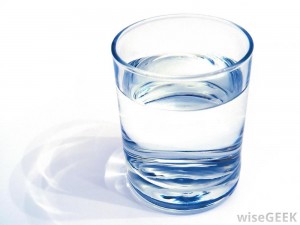As I watched the students in my classroom mentally wrestle with a problem, I studied their eyes, body language, and mouths as they talked a problem through. It became easy to identify their approach to a problem and often, their self-esteem was just as easy to assess.
While there are a multitude of variables that affect a child’s self-esteem, let’s consider a healthy child of “average” ability. If this student is a confident learner he typically:
- Is eager to learn
- Is interested when given an engaging activity
- Is thoughtful and persistent when solving problems
- Takes risks
Let’s consider the same healthy child of “average” ability. If this student is insecure and dubious about his abilities he often:
- Avoids school work
- Day dreams
- Copies off peers
- Appeals for help before attempting the work independently
- Cries or is obviously frustrated when encouraged to participate
A child who doubts himself and believes that he is unable has likely been told, either directly or indirectly, that he can’t. If he doesn’t believe that his best effort is good enough, he will often stop trying rather than risk missing the mark.
Over the years, I learned to harness the power of praise in my classroom. Praise, when sincere and specific, is powerful. Constant criticism is detrimental. You will see a more motivated and eager learner if you are able to assure a child that 1) you care about her learning, 2) you notice her efforts, and 3) you believe she is capable. Praise Really Does Matter.
As a teacher in a classroom (and as a parent and teacher in our home) I have found that children are most receptive to my teaching after I’ve carefully and thoughtfully given powerful praise.
Powerful praise is descriptive. It focuses on the accomplishment and specific observations. The end result is a confident learner who feels safe taking-risks.
Powerful praise is not:
- Untrue, unrealistic, or insincere (You are the best! There’s not another 10 year old who can do that!)
- Based on attributes (You’re so pretty. You’re so smart.)
- Based on the outcome (This grade is prefect! You made 10 points in the game!)
Effective praise (remember that it is descriptive and focuses on accomplishment and observations) might sound something like this;
- I noticed that you got your mouth ready for the word chimp. You started the word by saying the sound “ch”. Good readers do that, they get their mouth ready when they come to a tricky spot.
- You said chimp, but I could tell you weren’t sure chimp was right so you reread the sentence to make sure. Good readers do that, they reread the sentence when it doesn’t quite make sense.
- I noticed that you got the dictionary out when you came to a word you did not know. What did you learn from the dictionary that helped you better understand your reading?
- I noticed that you broke down the boxes in the cardboard recycling bin this week. That’s going to make it so much easier when we take the recycling next week.
- When I walked into your room last night I could tell that you had taken extra time to straighten your closet. I appreciate that the clean clothes are put away. That’s going to lighten our laundry load this weekend.
In thinking about the power of praise, my thoughts have turned to my daughter. This is our first year to home school and while Emma is doing well, she and I have shed some tears over math. Emma is not as careful in computation as I would like and I nit-pick each and every detail. I’m going to hold myself to my advice and find 2-3 praise points in Emma’s math practice every day before addressing an error.
Join the conversation below by sharing an example of powerful praise and the difference it made in your life.
For more from Marea, check out Me and Thee Studios’ faith based leveled readers for 1st-2nd graders at http://www.meandtheestudios.com/early-reader-collection.html.


